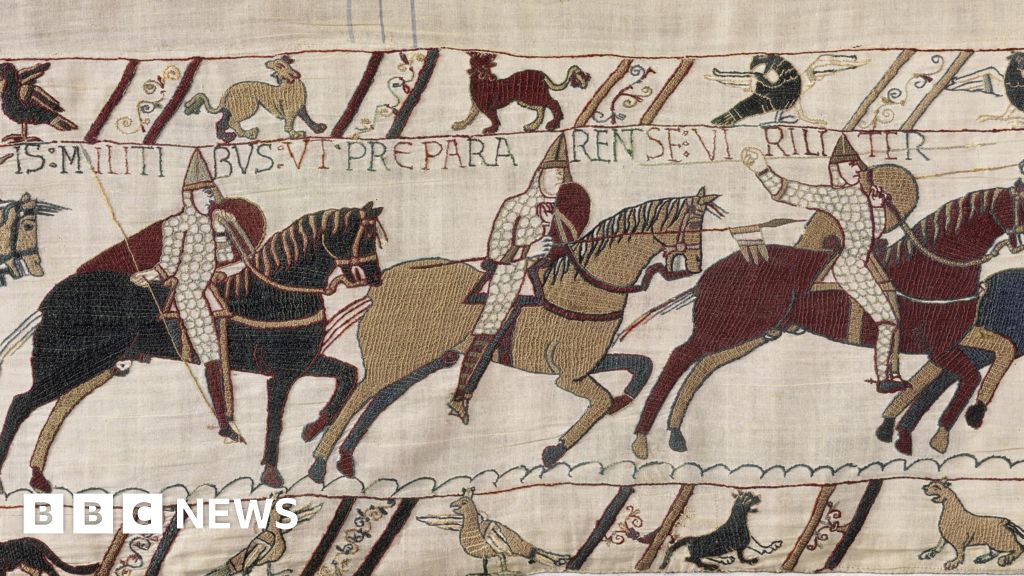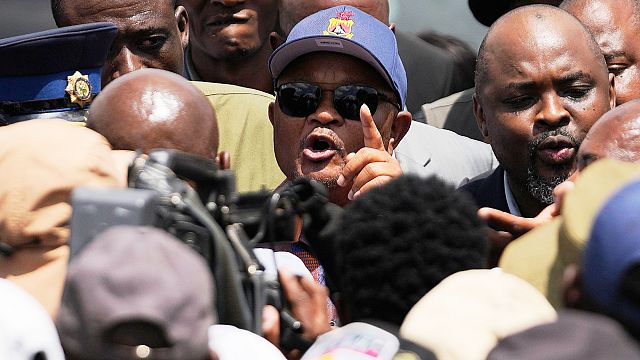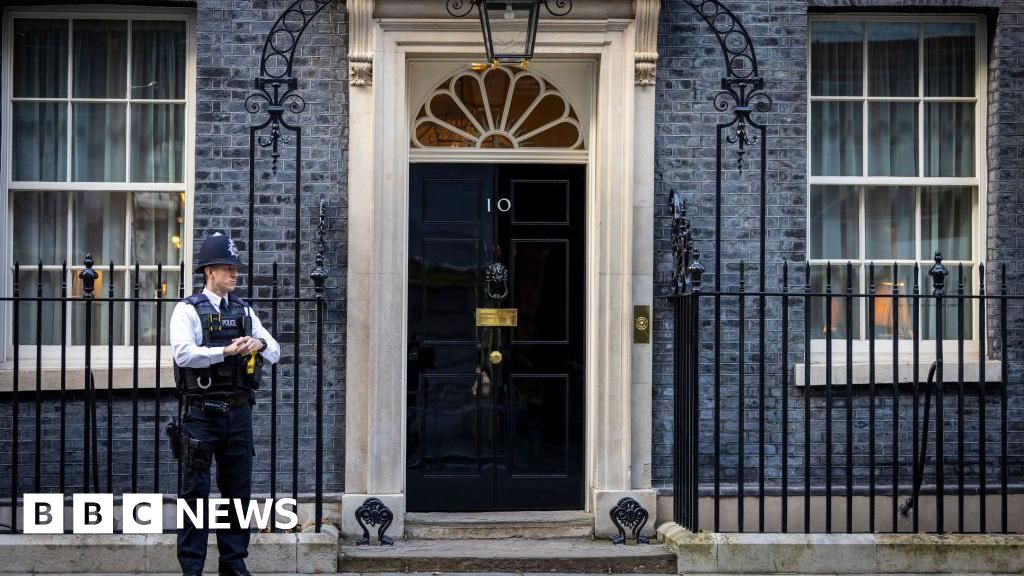Norman Tebbit, key Thatcher ally, dies aged 94
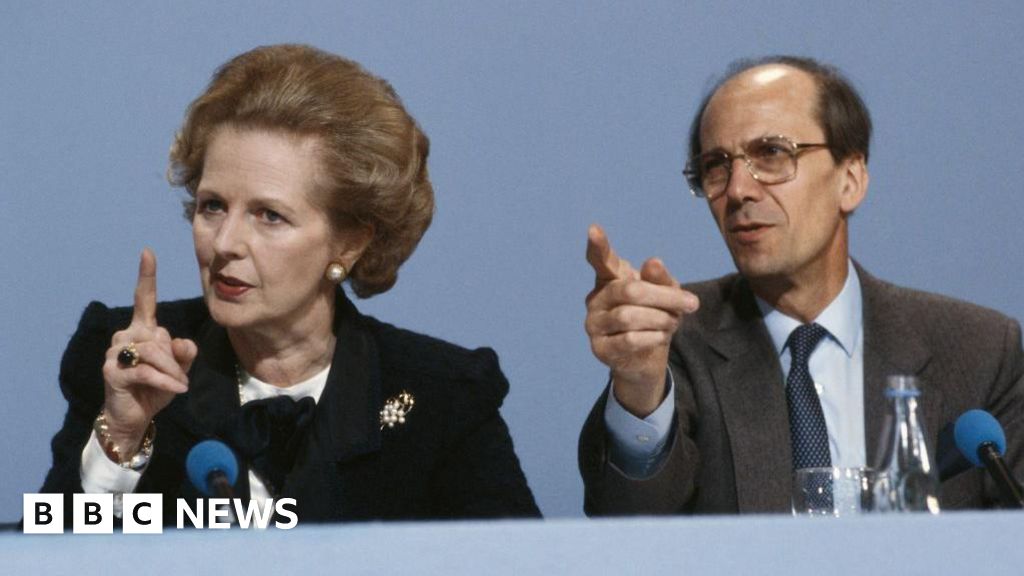
Former cabinet minister Norman Tebbit dies aged 94
Kate WhannelPolitical reporter
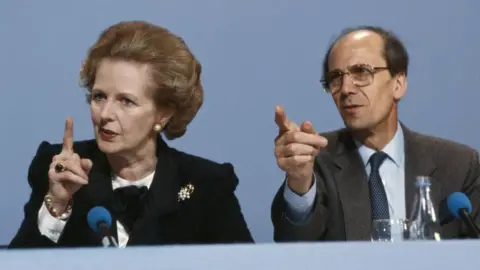 Getty Images
Getty ImagesNorman Tebbit, who served as a cabinet minister in Margaret Thatcher's government, has died aged 94.
Throughout the 1980s he worked as the chairman of the Conservative Party and led departments including trade and industry and employment.
A loyal ally of Thatcher, Lord Tebbit backed her agenda, bringing in laws designed to curb union power - including making them liable for damages if they did illegal acts.
In 1984, he and his wife were injured in the IRA bombing of the Grand Hotel in Brighton during the Tory Party's annual conference.
He suffered a broken shoulder blade, fractured vertebrae and a cracked collarbone, while his wife, Margaret, was left permanently disabled by the bomb.
In a statement released on Tuesday, Lord Tebbit's son William said: "At 11.15pm on 7 July 2025 Lord Tebbit died peacefully at home aged 94.
"His family ask that their privacy is respected at this time and a further statement regarding funeral arrangements will be made in due course."
Conservative leader Kemi Badenoch said Lord Tebbit "was an icon in British politics and his death will cause sadness across the political spectrum".
"He was one of the leading exponents of the philosophy we now know as Thatcherism and his unstinting service in the pursuit of improving our country should be held up as an inspiration to all Conservatives," she said.
"But to many of us it was the stoicism and courage he showed in the face of terrorism which inspired us as he rebuilt his political career after suffering terrible injuries in the Brighton bomb.
"He never buckled under pressure and he never compromised."
Lord Michael Dobbs, the author of House of Cards who worked as Lord Tebbit's chief of staff, told BBC Radio 4's Today programme he was "a man of great humour, of great political insight and a man of tremendous courage too."
"Not only political courage because he was willing to pursue policies he thought were fundamentally right even though at the time they might have been unpopular but he was also a man of great personal courage – the way he dealt with the aftermath of the Brighton bombing," he said.
"Politics misses tremendously people of that character who believe so deeply in what they are pursuing that they risk everything for it."
Margaret Thatcher's biographer Lord Charles Moore said he was the "first important personal example of Thatcherism in action because he was the self-made man from the working class and he was unapologetic about that".
Former Conservative MP Sir Conor Burns described Lord Tebbit as "candid, direct and shrewd" adding: "Sometimes his honesty made others uncomfortable which he relished! Norman said what many thought but didn't have the courage to say."

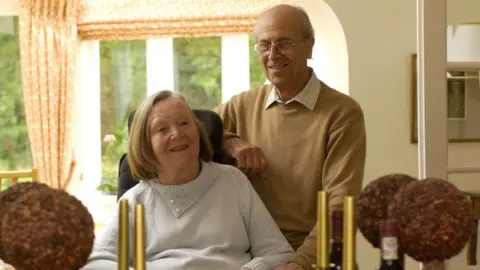
Born in 1931 in the north London suburb of Ponders End, he left school at 16 and joined the Financial Times.
He learnt to fly planes during his National Service with the RAF and later worked for the British Overseas Airways Corporation.
In the mid 1960s, he became increasingly involved in politics and in 1970 won the seat of Epping for the Conservatives.
The constituency was later reshaped and renamed Chingford, which he represented until 1992, when he left the Commons for the House of Lords.
As a politician he gained a reputation for his forthright approach, leading to his representation in the satirical puppet show Spitting Image as a knuckle-duster-wielding thug.
In 1981, he made his famous "get on your bike" speech to the Conservative Party conference in which he criticised riots over unemployment, telling the audience that in the 1930s his father had not rioted but had "got on his bike and looked for work, and he kept looking till he found it".
In 1990, he provoked anger when he posed a "cricket test" to help determine whether a person was truly British.
"A large proportion of Britain's Asian population fail to pass the cricket test," he said.
"Which side do they cheer for? It's an interesting test. Are you still harking back to where you came from or where you are?"
As party chairman he ran the Conservatives' 1987 general election campaign, securing a third successive victory for Thatcher.
However, after the election he left government in order to care for his wife.
He continued to prioritise his caring duties over a return to front-line politics, declining an offer from Thatcher to re-join her cabinet and deciding against running in the leadership election to replace her in 1989.
What's Your Reaction?
 Like
0
Like
0
 Dislike
0
Dislike
0
 Love
0
Love
0
 Funny
0
Funny
0
 Angry
0
Angry
0
 Sad
0
Sad
0
 Wow
0
Wow
0


